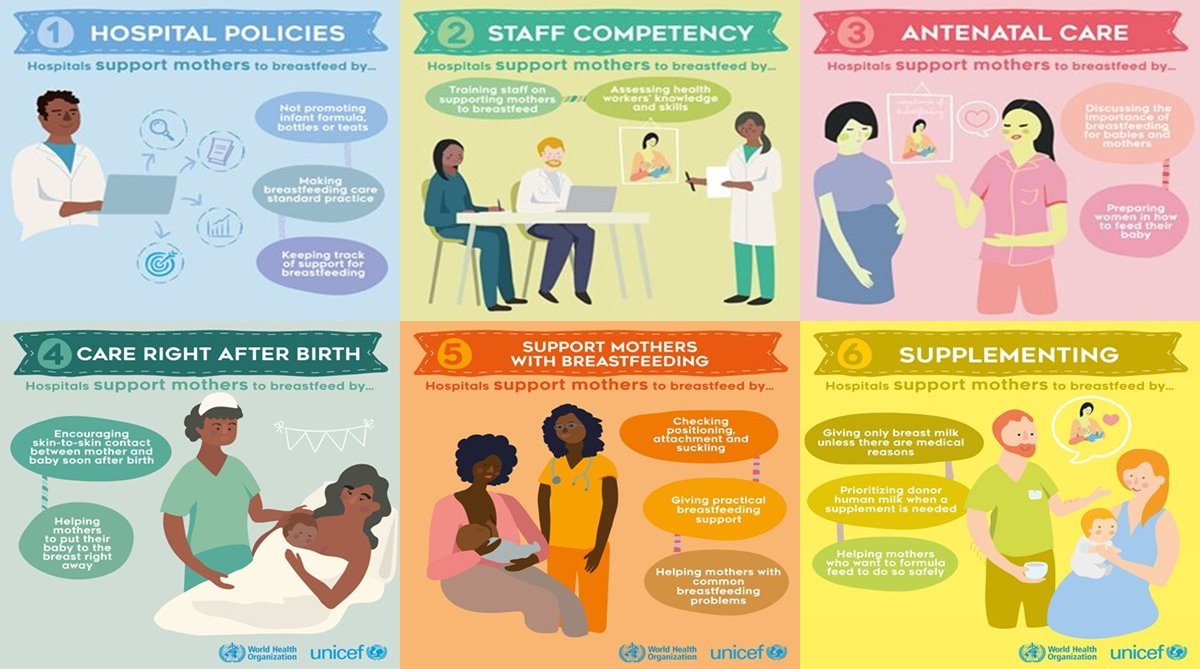BTS’ Jimin achieves momentous Billboard milestone with ‘Who’
Despite being five months since its release, BTS' Jimin continues to be a part of the Billboard Hot 100 chart with 'Who.'
In the South-East Asia region, where WHO has been promoting breastfeeding as a critical tool for healthy growth of infants, nearly half the infants on an average are exclusively breastfed for the first six months of life, compared to 38% globally and 18% in industrialised countries.

Infographics: WHO's Baby-friendly hospitals initiative. (Photo: WHO)
The World Health Organization has always maintained that exclusive breastfeeding for the first six months of birth and continued breastfeeding up to the age of two years provides the strongest foundation of good health for a lifetime. Breast milk has all the nutrients an infant requires to grow into a healthy and strong child, aided with appropriate complementary foods after six months of age. This is not only a powerful means to set up a lifetime of optimal nutrition, but also prevents undernutrition and obesity.
In the South-East Asia region, where WHO has been promoting breastfeeding as a critical tool for healthy growth of infants, nearly half the infants on an average are exclusively breastfed for the first six months of life, compared to 38% globally and 18% in industrialised countries.
Advertisement
To build on the region’s impressive record and provide each of its infants the strongest foundation for lifelong health and optimal nutrition, a series of key initiatives should be implemented, Dr Poonam Khetrapal Singh, WHO Regional Director for South-East Asia, says in her message for the World Breastfeeding Week starting on August 1.
Advertisement
READ | 3 in 5 newborns not breastfed within first hour of life: Unicef
“First, breastfeeding should be promoted across sectors and its many virtues highlighted wherever possible. That means developing campaigns that educate new mothers and support them to breastfeed, including by highlighting the benefits to mothers themselves, at the same time as enhancing public buy-in,” she says.
Elaborating on this, Singh says it needs to be ensured that policymakers across sectors, including in the workplace, are aware that breastfeeding is a proven means to prevent undernutrition in the region where around 60 million children aged 0-5 years experience stunted growth. She says breastfeeding also helps combat obesity and the premature deaths non-communicable diseases can cause – one of the region’s flagship priorities.
“Second, the Region’s Member States should harness the backing provided by the recently adopted World Health Assembly Resolution on infant and young child feeding, which urges all WHO Member States ‘to implement and/or strengthen national mechanisms for effective implementation of measures aimed at giving effect to the International Code of Marketing of Breast-milk Substitutes’,” says Singh.
READ | What is Innocenti Declaration?
The third initiative that needs to taken, according to her, is that member states and health facilities across the region should fully embrace the “WHO- and UNICEF-developed baby-friendly hospital initiative”. Since 1991, maternal and child care institutions have been created as part of this initiative to protect and promote breastfeeding. This, Singh says, has resulted in increased institutional births across the region.
In December 2017, WHO South-East Asia held a regional consultation on enhancing the uptake and implementation of the initiative.
“That is especially encouraging as WHO South-East Asia marks World Breastfeeding Week. If every child was breastfed within an hour of birth, was exclusively breastfed for the first six months of life, and continued to be breastfed up to the age of two years, the lives of more than 800 000 children would be saved worldwide each year, many of them in the South-East Asia Region,” says WHO Regional Director for South-East Asia.
Advertisement